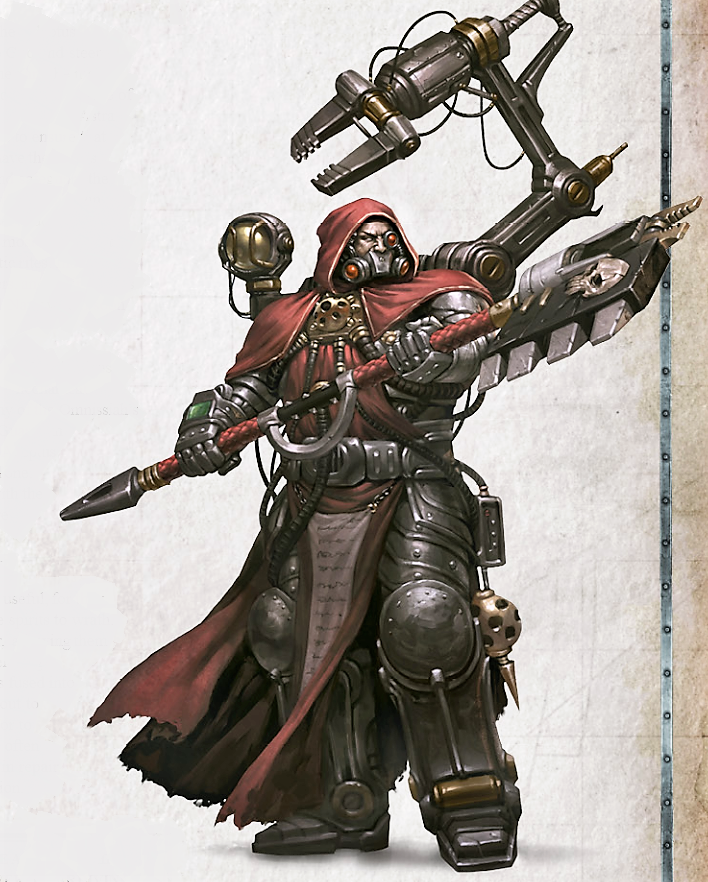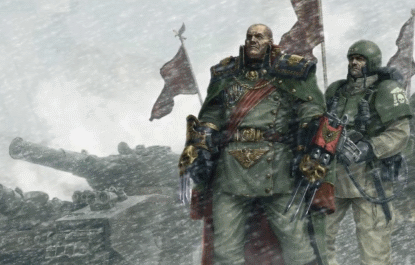


- #Warhammer 40k dark heresy physical fighter adept full#
- #Warhammer 40k dark heresy physical fighter adept series#
I don't think DH is a game which lends itself to a simplistic tier system and I've never found any balance concerns. And in the end, even if you do make a god-tier character, you might not last any longer than your adept buddy with every skill point put into the field of lore. If you want to break it, only the GM is there to stop you. The game isn't designed for balance or 'fairness', though, so this is to be expected. Off the top of my head, I think I've heard psykers, tech priest and full-auto firearms named a few times in connection to being gods in the game. Or so I've heard, since numbers are not my thing. It's all much less absolute on the win-lose metre, since even the powerhouses can have difficulty against a majority of the foes you are facing.Īll in all, Dark Heresy is easy to break if you want to optimize. In DH, even if your character sucks mechanically, you can still roleplay some moments of success, whether by underhanded backstabbing or stumbling upon an ancient relic in a hive city ditch or just by having some obscure occult skill that comes into play at just the right moment. That requires a different level of balance. Sure, D&D can have that too, but the design of the game is still such that it encourages being effective in cleaning out dungeons or other such dangerous locations. Most people go into a game of DH with the same mentality as in a game of Call of Cthulhu: we may not win, but we'll do our best.

In DH, though, you have investigation, sneaking, piloting, thinking, reading, poetry and all that good stuff we normal fleshy humans would do. D&D is about combat to such a degree that it is easy to see which classes are 'the best' purely based on their performance in delivering violence. The thing is, though, none of this matters. One thing we can all agree on, I'd reckon, is that psykers win at everything. Other than that, the best way to approach the later Heresy books is to cherry-pick ones that focus on factions or characters you're already interested in and skip the rest.There is, though I'm not sure if there is a universal agreement on the specifics. A rare exception is Legion, a spy novel that uses yet another of 40K's grand pointless wars as a backdrop.
#Warhammer 40k dark heresy physical fighter adept full#
Unfortunately the Horus Heresy books were a victim of their own success, selling well enough that initially modest plans were expanded into a line that numbers over 50 books, full of padding and stories that bounce back in the timeline to fill gaps no one cares about. It's a look at the Imperium before religious dogma dominated it, imperfect but far from "the cruelest and most bloody regime imaginable" it becomes. In these, the perspective is split between superhuman space marines and ordinary remembrancers-artists, photographers, poets, and journalists brought along to record their Great Crusade for posterity, who instead witness its fall into corruption and betrayal. The first three are the essential ones: Horus Rising, False Gods, and Galaxy in Flames. Like most prequels they're better experienced after the stories they're set before, full of foreshadowing that pays off if you know what's coming. The Horus Heresy line jumps back 10,000 years to a formative point in the setting's history. While the enemies faced by the Ghosts are terrible, Gaunt struggles just as much against the orders he's given. Unfortunately for them, the war engine of the Imperium is full of glory hounds and bastards happy to throw away thousands of lives to move a trench forward half a mile. Colonel-Commissar Ibram Gaunt is an unusually compassionate officer, dedicated to keeping alive a regiment who are the only survivors of a dead world.
#Warhammer 40k dark heresy physical fighter adept series#
Suddenly it's more like the X-Men than The Big Sleep, a change that revitalizes the series and makes it worth sticking with.įor classic military sf, Gaunt's Ghosts is the series you want. Ravenor jumps genre and protagonist, following an inquisitor who works with a team of badass specialists. The third book in the Eisenhorn trilogy suffers from this, but waiting on the other side is a sequel trilogy called Ravenor.

Eisenhorn's written by Dan Abnett, one of the better 40K writers but one with a weakness-endings that feel rushed. His investigations into Chaos frequently lead to conflict with the machinery of the Imperium he's supposed to protect, which plays well with the genre's cynical view of authority. The Eisenhorn books turn 40K into hardboiled fiction, with Inquisitor Eisenhorn as a Raymond Chandler detective narrating in first-person.


 0 kommentar(er)
0 kommentar(er)
